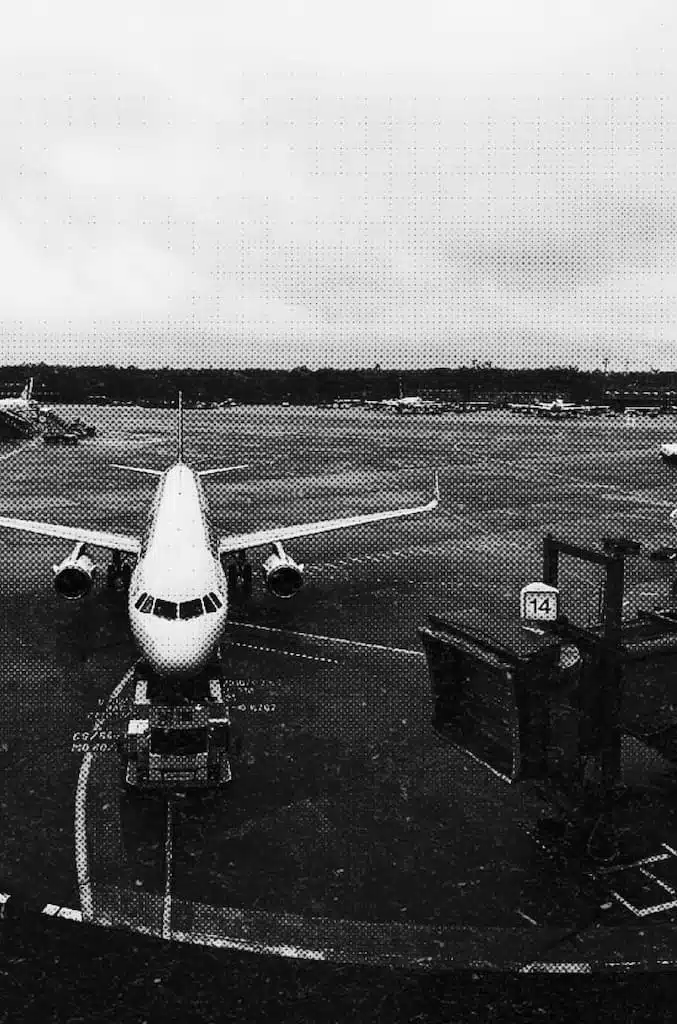REPORT
50 Lessons in Sustainable Aviation
From 10 Notable Industry Leaders
50 Lessons in Sustainable Aviation: From 10 Notable Industry Leaders
Our report showcases the insights gained from ten distinguished trailblazers in aviation sustainability, and how they are revolutionising the aviation landscape.
The need for sustainable aviation
As we step into 2024, the aviation industry finds itself at a pivotal juncture. Even though the pace of developments accelerated in 2023 – and it was transformational in many aspects – there are growing concerns about the industry not meeting its sustainability targets.
Over the past couple of years, our dedicated sustainable aviation podcast ‘Sustainability in the Air‘ has aimed to separate the signal from the noise by seeking expert opinions from a wide range of industry and industry-adjacent leaders.
This report showcases the insights gained from ten distinguished trailblazers in aviation sustainability, who were interviewed by Shashank Nigam, CEO of SimpliFlying, for our podcast. These experts are revolutionising the aviation landscape, from redefining tourism practices to reducing contrail emissions to advancing the use of sustainable aviation fuel (SAF), promoting electric vertical takeoff and landing (eVTOL) aircraft, and exploring hydrogen and battery-powered solutions.
Through their insights, these visionaries reveal a collective journey towards a future where innovation, sustainability, and aviation converge to pave the way for more responsible and eco-conscious travelling.
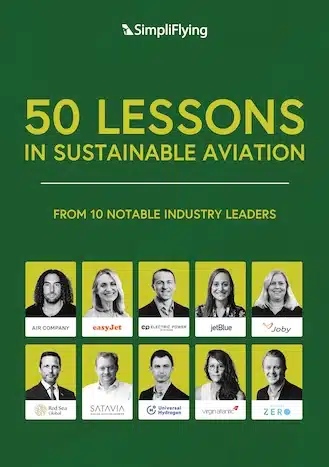
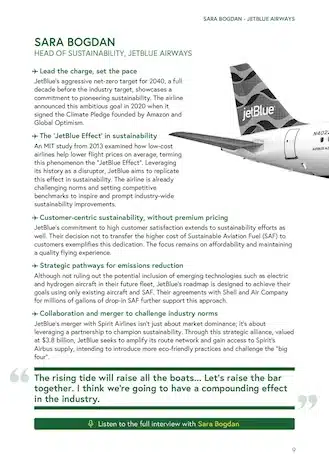
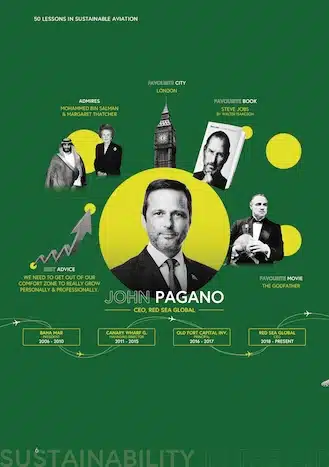
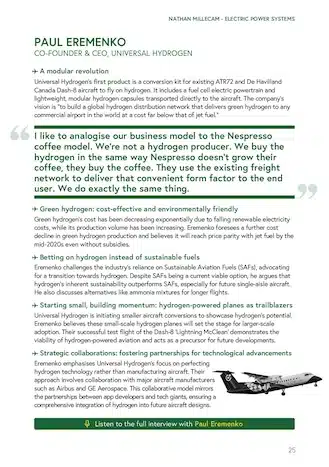
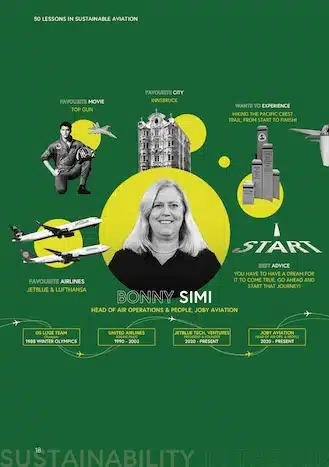
Ideas for revolutionising the aviation landscape
Implementing ecological ceilings
Uncommon in an industry focused on mass tourism, Red Sea Global opts for conscious self-limitation, strictly controlling the number of visitors to maintain ecological balance.
Sustainable innovation from thin air
Leveraging their proprietary AIRMADE™ technology, Air Company transforms CO2 into eco-friendly goods like vodka, perfume, and aviation fuel, marking a paradigm shift in how consumer products are made.
Save a billion people an hour a day
Joby Aviation, plans to save people significant time with their aerial ridesharing service that flies above traffic.
Modularity
Universal Hydrogen plans to use the concept of modularity to integrate hydrogen fuel capsules with existing intermodal freight networks, providing flexibility in refuelling and maintaining compatibility with current infrastructure.
Regional routes as a testbed for electric planes
Widerøe Zero is betting on electric aviation for short-haul travel. Nearly 74% of Widerøe’s domestic flights cover a distance of less than 300 kilometres, making these routes an excellent testbed for new aircraft.
